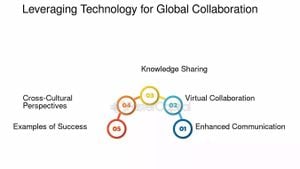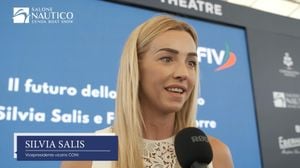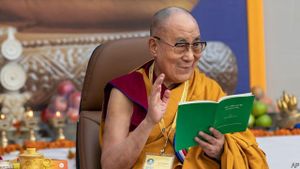Elon Musk has confirmed his entryinto a significant partnership with Dubai to develop the Dubai Loop, a groundbreaking underground transportation project aimed at alleviating the city’s traffic congestion. Announced at the World Governments Summit on February 13, 2025, the initiative promises to connect Dubai's most densely populated regions, offering residents and visitors seamless access to various points across the Emirate.
Musk, speaking via video link during the summit, indicated the Loop's potential to revolutionize urban travel. "It's gonna be like a wormhole -- you just wormhole from one part of the city, boom, and you're out in another part of the city," he explained, capturing the futuristic vision behind the project.
Omar Sultan Al Olama, the UAE Minister of State for Artificial Intelligence, emphasized how this innovative system aspires to improve the efficiency of transportation within the city. "The Loop project is going to cover Dubai's most densely populated areas for people to go from point to point seamlessly. We hope to change people's lives,” he stated, highlighting the project's societal benefits.
The Dubai Loop is expected to resemble Musk's previously developed Las Vegas Loop system, which operates underground to provide high-speed, traffic-free transport. Currently, the Las Vegas Loop features four stops, with passengers paying $10 for approximately eight minutes of travel. While the number of stops and exact fare for the Dubai Loop remains undisclosed, the expectation is set for speedy access across the city.
Reflecting on his experiences, Musk expressed confidence in the project's appeal, stating, "I think once people try it out, they’ll be like, ‘This is really cool.’ It’s so obvious in retrospect, but until you actually do it you don’t know." This sentiment is echoed by others who have used similar systems, which have garnered positive feedback.
The envisioned transportation system is not simply about speed—it also addresses safety concerns often associated with urban transport. Musk pointed out the advantages of tunnel systems, arguing they provide enhanced safety compared to other methods like aerial vehicles or flying cars, which still remain largely theoretical. He described tunnels as being akin to "submarines"—ideal for stability during extreme weather conditions, emphasizing their comparatively tranquil environment even during natural disasters.
The anticipated benefits of the Dubai Loop extend beyond individual convenience; they aim to reshape urban infrastructure as cities confront increasing traffic volumes. Yet, the project's success hinges on effective implementation, avoiding the pitfalls seen with previous initiatives, such as the stalled Hyperloop proposal aimed to link Dubai and Abu Dhabi.
With these challenges looming, the emphasis on reducing bureaucratic hurdles within local government is significant. Musk, recognized for his innovations both domestically and internationally, highlighted the potential for improved efficiency. "We have a lot of support from the American public to improve government efficiency. It’s something common to voters of all types," he claimed.
His thoughts on the need for streamlined processes resonate with the UAE's intent to integrate this cutting-edge transportation project effectively. By collaborating with Musk—whose Boring Company has been pivotal in advancing tunnel construction technologies—the UAE aims to solidify its position as a leader not only in transportation innovation but also as a beacon of futuristic urban living.
While specifics about the system’s design and operational framework remain scant at this stage, the partnership indicates ambitious aspirations for Dubai's future. By investing heavily in infrastructure projects such as the Loop, city officials are applying forward-thinking approaches to urban challenges.
Analysis of the Dubai Loop within the broader scope of urban transformation underlines Musk's role as more than just a technologist; his involvement signifies the potential of technological interventions to redefine lifestyles and urban mobility. The drive for sustainability and efficiency, paired with cutting-edge ideas like the Loop, could encourage other cities to seek similar partnerships, amplifying urban development initiatives worldwide.
Elon Musk's partnership with Dubai shines brightly at the World Governments Summit, presenting the Dubai Loop not merely as transport infrastructure but as part of the broader narrative of future city planning. Emphasizing smart solutions to persistent urban challenges, the Loop encapsulates possibilities for enhanced mobility, efficiency, and quality of life, marking another step toward the sprawling, technologically evolved cities of tomorrow.



